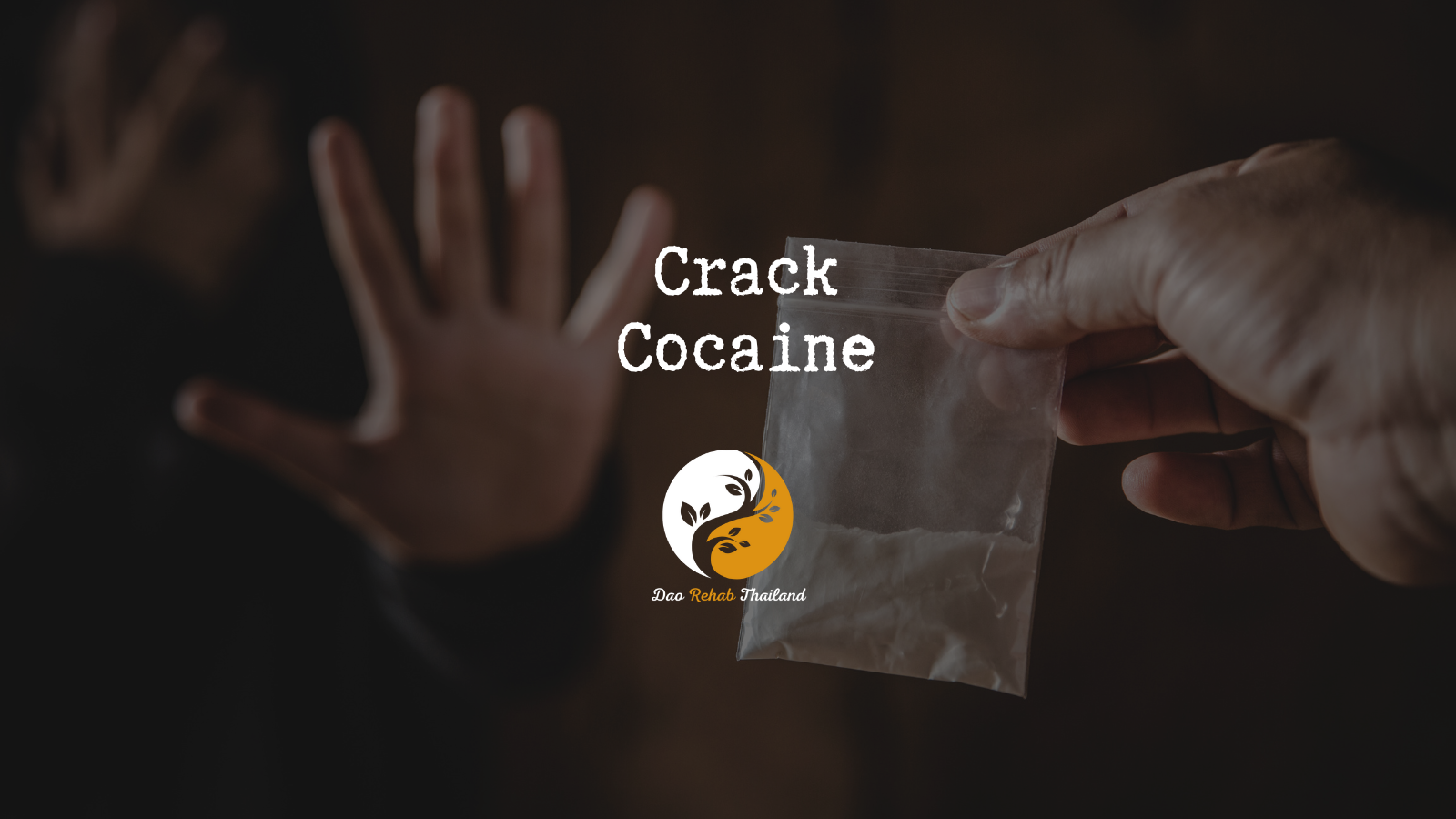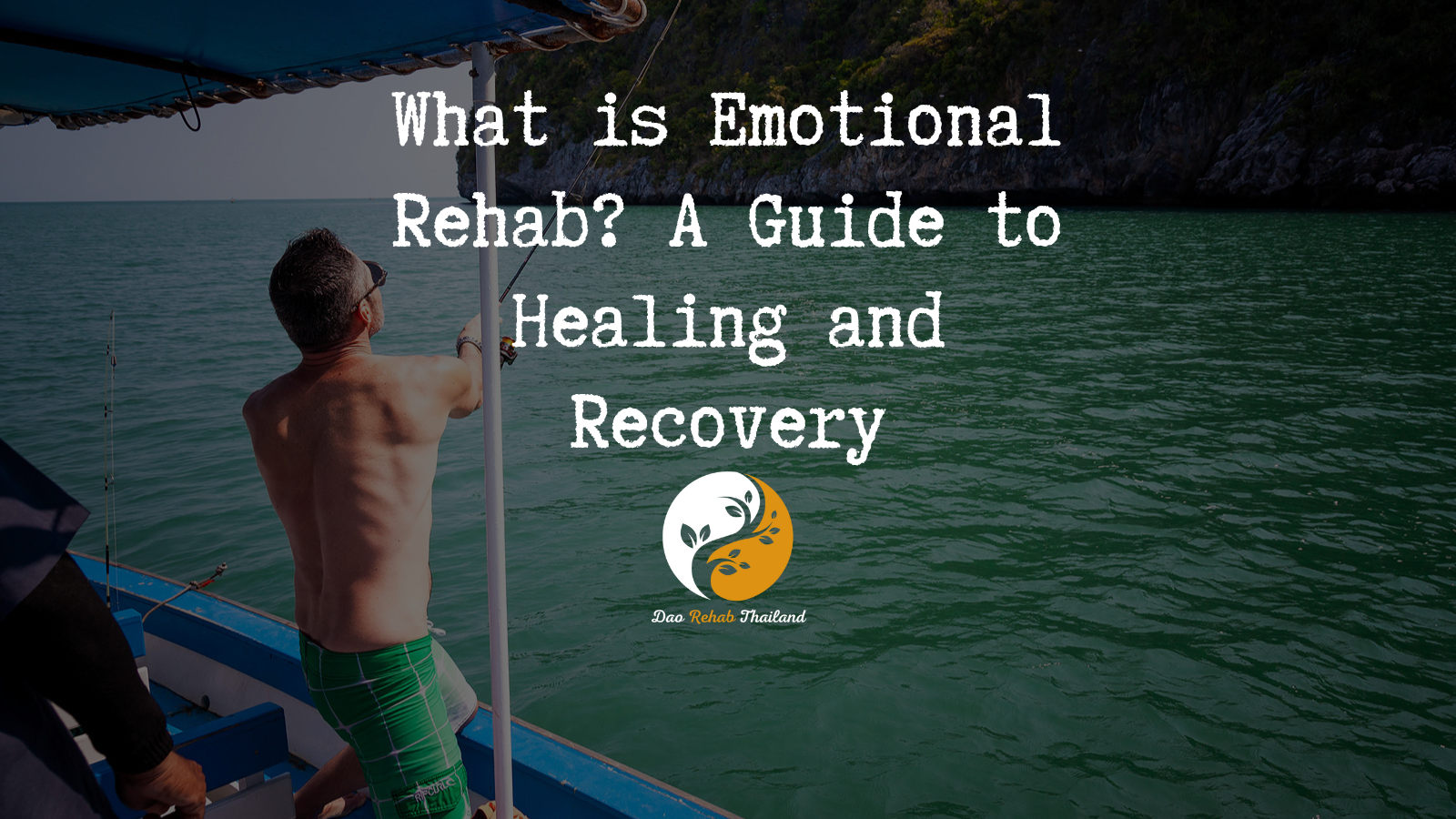
There is nothing to be learned about the self
There is nothing to be learned about the self
“Turning the impossible into possible”

"Detox from Drugs at a Luxury Holistic Center in Thailand and Israel"

There is nothing to be learned about the self
The search for the truth about the self is a central theme in this conversation. The speaker claims that there is actually nothing to be learned about the self, since the self is ultimately nothing. Everything that seems to us to be “self” is a collection of ideas, memories and thoughts built over the years by thought itself. Thought creates an illusion that we are “something”, but it is only an illusion.
"Holistic Center for Trauma, Addiction, and Mental Imbalance Treatment in Thailand"
“Come to the beginning of your journey to freedom from addiction to alcohol, drugs, and pills, and rediscover your life within the serene embrace of DaoTherapy Rehab in Thailand—where holistic healing meets empowering recovery.”
DaoTherapy Holistic Rehab
Key Elements of DrugsDetox:
Medical Supervision: Drugsdetox must be conducted under medical supervision, as the body may experience withdrawal symptoms. These can include nausea, anxiety, muscle aches, and insomnia. A medical team will monitor and manage these symptoms to ensure the patient’s safety and comfort.
Holistic Therapies:
Holistic Therapies: Many detox programs incorporate holistic therapies such as mindfulness, yoga, and meditation to help individuals cope with stress and anxiety during the detox process. These therapies support the mind-body connection and contribute to overall recovery.
Tapering Process
Tapering Process: Drugs detox often involves a gradual tapering of the drug to reduce withdrawal severity. Doctors will slowly decrease the dosage over time to allow the body to adjust to lower levels of the substance.
Psychological Support:
Psychological Support: Like any addiction recovery process, detox from Drugs includes psychological support. This can involve counseling, therapy, or support groups to address the mental and emotional aspects of addiction.
Post-Detox Treatment:
Post-Detox Treatment: After completing detox, continuing treatment is crucial to prevent relapse. This often includes participation in ongoing therapy, group support, and the development of new coping strategies to maintain sobriety.
Because the self is ultimately nothing
The search for the truth about the self is a central theme in this conversation. The speaker claims that there is actually nothing to be learned about the self, since the self is ultimately nothing. Everything that seems to us to be “self” is a collection of ideas, memories and thoughts built over the years by thought itself. Thought creates an illusion that we are “something”, but it is only an illusion.
To truly understand this, one must reject on a psychological level everything that thought has assembled. Many people come to learn about themselves, but in practice they learn nothing real. They hold on to wounds, anxieties and attitudes they hold, and live through those things, which ultimately makes them neurotic.
It is important for each person to be clear about why they are here and what they want to achieve. The speaker himself knows exactly why he is there and what he wants to say. If the listeners have multiple and confused motives, they will not be able to derive real benefit from the conversation.
One of the participants comments that when the speaker says “nothing”, he feels like he is in an empty room. The speaker confirms that this is exactly the meaning of the word – not a thing. This concept of “nothing” is radical and difficult to grasp, because it requires us to give up all the images and implications we have created for ourselves.
The question arises as to how the illusion that we are “something” is created. The speaker explains that the illusion is created by thought itself. Our entire existence consists of memories created by thought, and we live based on those memories, making life an unreal experience.
The conclusion that emerges from this is that in order to reach the truth about the self, one must reject everything that thought has assembled. This is a radical process that requires great depth and self-honesty. The way to achieve a true understanding of the self is not through the accumulation of knowledge or psychological analysis, but through the understanding of the illusion that thought has created and liberation from it.
In conclusion, the conversation raises essential questions about the nature of the self and the process of true self-exploration. It challenges the accepted notions about self-learning, and offers a more radical approach of rejecting everything the mind has created. This is an invitation to re-examine our basic assumptions about who we are and what life means, and embark on a journey of true self-discovery.

contact us
Contact us with your questions
We would love to speak with you! Feel free to reach out with any questions.

get in touch
Schedule a free consultation
Schedule a free consultation with our team and let’s make things happen!
The investigation of the self: a journey to the inner truth
introduction
The search for the truth about the self is one of the main topics in philosophy, psychology and various spiritual wisdoms. It is an inner journey that invites us to look deeply and truly at the essence of our existence, beyond all the masks and roles we wear in everyday life. In this conversation, the speaker challenges the accepted concepts about self-learning, and offers a more radical and in-depth approach to the study of the self.
the illusion of the “self”
The main idea that comes up in the conversation is that there is actually nothing real to learn about the self, because the self, as we perceive it, is ultimately an illusion. Everything that seems to us to be “self” is actually a collection of ideas, memories, opinions and thoughts accumulated over the years, and that thought itself created. We identify with that imagined “self” and build our entire sense of existence around it, but in practice it is a psychological structure created by thought and has no real validity.
Thought as the creator of the illusion
The speaker explains that it is the thought that creates the illusion of the “self”. Thought builds a sequence of memories, ideas and images, and we live and act through those mental contents. We accept the thoughts and memories as absolute truth and identify with them completely, until they become the basic experience of our existence. However, all those contents are ultimately virtual and devoid of self-reality. They exist only within the mental space created by thought, and have no objective existence.
The need to reject the illusion
In order to begin to touch the truth of the self, a process of rejecting and renouncing everything that thought has created is necessary. This is a radical process that requires us to release the deep identification with our self-image and with all the stories we tell ourselves about who we are. Only when we are willing to let go of that illusion, can we begin to discover the true essence that lies beyond it. It is a process that requires courage, honesty and true introspection.
The common state of superficial self-seeking
Despite the common desire to learn about the self and know ourselves deeply, most people are actually trapped in a superficial circle of self-analysis and psychological probing. They are busy identifying character traits, patterns of behavior or formative past experiences, believing that the more details they know about themselves, the closer they will get to the truth. However, as long as self-exploration is conducted through the contents of thought and memories, it can never lead to real change or the discovery of the true self.
The need for clarity about the motivations for self-inquiry
Another important point raised in the conversation is the need for clarity about our true motives for self-inquiry. The speaker emphasizes that he himself knows exactly why he is in the conversation and what he wants to achieve. On the other hand, many of the participants come with multiple, contradictory and unclear motives. They want to learn about themselves, change, improve, but without really knowing what the essence of that change is and what they are looking for. This situation creates confusion and prevents them from progressing in the direction of inner truth.
Dealing with the concept of “nothing”
One of the shocking insights that come up in the conversation is that when you remove all the layers of thought and memories, what is left is actually “nothing”. This is a difficult point for most to digest, as it threatens our basic sense of security. We want to believe that we have a stable, solid and valuable self, and that we are beings of importance and meaning. The thought of being “nothing” is seen as scary and difficult to accept. However, this recognition is a gateway to a deeper understanding of existence.
The true meaning of self
When we realize that the imagined self is indeed nothing, a space opens up for the discovery of our true essence. It is pure awareness, an alert and present existence that does not identify with any mental content. This is a state of inner freedom, where we experience life directly, without the interpretations and judgments of thought. In this sense, the understanding of our being “nothing” is not negative or empty, but is an opening to knowing the unconditional dimension of existence.
The consequences of understanding on life
Understanding the nature of the true self is not merely a philosophical or theoretical matter, but has profound practical implications for the way we live. When you start living from a place of true self-awareness, your entire worldview changes. Instead of living in an endless circle of thoughts, worries and fears, we discover inner peace and true freedom. We are able to fully experience the present moment, without running away from it or trying to change it. Human relationships become more honest and authentic, and life takes on qualities of joy, lightness and creativity.
Summary – the first step in the journey
The conversation about self-exploration is an invitation to embark on a deep inner journey, a journey in which we are ready to examine all our basic assumptions about ourselves and reality. It is a journey that begins with the realization that most of what we think we are is actually a collection of baseless ideas and images, and that ultimately leads to the discovery of our true essence. It is a challenging process that requires courage, but it also holds the promise of a life of freedom, love and inner peace. The first step in the journey is the willingness to listen, investigate, and question everything we take for granted.
Key insights
1. There is nothing to learn about yourself, because the “self” is actually nothing.
2. Everything we think we are, is just a collection of ideas and thoughts accumulated over the years.
3. It is thought that creates the illusion that we are something, but it is only an illusion.
4. To truly understand this, you have to reject on a psychological level everything that thought has created.
5. People come to learn about themselves, but most of the time they don’t really learn anything.
6. People cling to their wounds and anxieties, and live through them, which makes them neurotic.
7. It is important to be clear about why you are here and what you want to achieve.
8. If you have many and confused motives, you will not be able to derive real benefit.
9. The lecturer knows exactly what he wants to convey and why he is here.
10. To understand the truth about yourself, you must be radical and go very deep into the investigation.
Practical advice
1. Be aware that everything you think you are, is just a collection of thoughts and ideas.
2. Try to understand that the “self” you identify with is actually empty and doesn’t really exist.
3. Look within and be ready to reject on a psychological level everything that thought has created.
4. Don’t hold on to your wounds and anxieties, because that will only lead you to suffering.
5. Be clear about why you are seeking the truth about yourself and what you want to achieve.
6. Be radical in your investigation and don’t settle for superficial answers.
Psychological Support:
Psychological Support: Like any addiction recovery process, detox from Subutex includes psychological support. This can involve counseling, therapy, or support groups to address the mental and emotional aspects of addiction.
Thought-provoking questions
1. Are you ready to look inside and see that everything you think you are is just a collection of thoughts and ideas?
2. What does it mean to be truly free from the illusion of “self”?
3. How can you begin to explore the truth about yourself on a deeper level?
4. What are you willing to do to free yourself from holding on to your wounds and anxieties?
5. How can you be clearer about the real reason you are seeking the truth about yourself?
Physical Withdrawal Symptoms of OxyContin:
Physical Withdrawal Symptoms of OxyContin:
Withdrawal from OxyContin can be intense due to its potent opioid nature. The physical symptoms often resemble those of withdrawal from other opioids but can be more prolonged due to OxyContin’s extended-release formulation. Here are the main physical symptoms:
1. Muscle and Joint Pain:
– Widespread aches and pain in muscles and joints are common and can range from mild discomfort to severe pain.
2. Nausea and Vomiting:
– Persistent nausea and vomiting can occur, making it difficult to stay hydrated or eat properly.
3. Diarrhea and Abdominal Cramps:
– Stomach cramps and diarrhea are common as the digestive system reacts to the absence of the drug.
4. Sweating and Chills:
– Profuse sweating and alternating hot and cold flashes are typical as the body struggles to regulate its temperature.
5. Runny Nose and Watery Eyes:
– These symptoms often mimic those of a cold or flu and are among the early signs of withdrawal.
6. Yawning and Fatigue:
– Frequent yawning and extreme tiredness, even if unable to sleep, are typical during withdrawal.
7. Rapid Heart Rate and Increased Blood Pressure:
– The cardiovascular system can become hyperactive, leading to an elevated heart rate and spikes in blood pressure.
8. Insomnia:
– Difficulty falling or staying asleep is common and can exacerbate fatigue and emotional distress.
9. Goosebumps (Piloerection):
– Goosebumps are a common symptom that can occur alongside chills, contributing to discomfort.
10. Tremors:
– Shaking or tremors, particularly in the hands, may occur, adding to physical discomfort.
Management and Treatment:
– Hydration and Nutrition: Staying hydrated and consuming nutritious food can help support the body during withdrawal.
– Medical Supervision: Professional medical support is recommended to manage severe withdrawal symptoms safely, especially for those with a history of long-term OxyContin use.
– Medication Assistance: Medications such as clonidine may be used to help manage withdrawal symptoms, and anti-nausea drugs can reduce gastrointestinal distress.
– Supportive Care: Techniques such as gentle exercise, warm baths, and relaxation practices can help alleviate symptoms.
Understanding these physical withdrawal symptoms is essential for anyone undergoing or planning to stop OxyContin use, ensuring a safer and more supported detox process.
Psychological Support:
Psychological Support: Like any addiction recovery process, detox from Subutex includes psychological support. This can involve counseling, therapy, or support groups to address the mental and emotional aspects of addiction.








